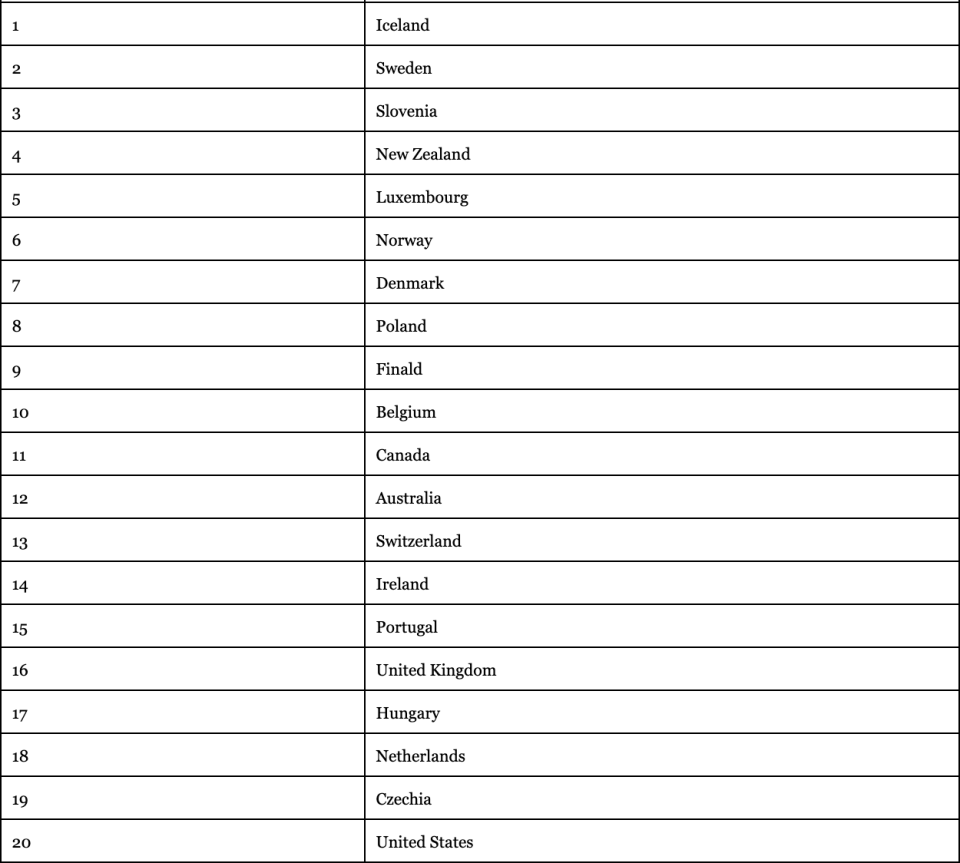Gender pay gap hits UK's women in work ranking

The UK is being overtaken by greater improvements in female employment prospects in other Organisation for Economic Co-operation and Development (OECD) countries, according to the latest ranking of international female economic empowerment in the workplace.
The Women in Work Index by professional services network PwC analyses female economic empowerment across 33 OECD countries to create the annual ranking.
Despite remaining at number 16 on the list the UK’s position has barely moved since 2000 when it was placed at number 17, even after improving its performance across all five indicators and performing above the OECD average.
Iceland claims the top spot, followed by Sweden, Slovenia, New Zealand and Luxembourg.
Read more: Global gender pay gap will take nearly 100 years to close
Canada is the top ranking G7 economy at number 11, followed by the UK, and the US in 20th place.
If the female employment rate across the OECD countries matched Sweden, OECD GDP would be boosted by more than £4.63tn ($6tn), according to the index. The UK’s GDP would be lifted by £189bn if it matched Sweden.
The study indicates that closing the gender pay gap across the 33 countries would increase women’s earnings by £1.54tn.
It’s not all doom and gloom for the UK as regional inequalities in women’s employment are declining, with every region except Scotland since last year. The advances are largely due to female labour force participation and full-time employment rate.
The South West was the UK’s top region, improving on all indicators, while Northern Ireland jumped from 4th to 2nd. London came lowest due to poor female labour force participation and a high female unemployment rate.
Closing the gender pay gap in the UK would raise female earnings by £93bn — an increase of 20%.
Jing Teow, economist at PwC, said: “Although progress has been made across both the UK and OECD, the rate of improvement is still slow, despite the prospect of huge economic gains from increasing female participation in the workforce.
“In order for these gains to be realised, businesses and governments need to work together to help get more women into work and ensure that there is a fair and equal pay structure. It’s also crucial that women get the right opportunities to upskill in the face of increasing automation as we enter the ‘Fourth Industrial Revolution’.”
Read more: Women in the UK ‘work for free’ for two months a year
The index highlights women in technology as an important area for improving female economic empowerment. Across the G7, the world’s seven largest advanced economies, women make up just 30% of the tech workforce, and even fewer women are in the top jobs in tech companies, despite technology being “front and centre for businesses and wider society,” according to the study.
Canada is the best performing G7 country in terms of gender representation and equality in the tech sector, with France in second place.
The UK is fifth in G7 for women in tech: its poor performance is driven by worse than average performance on all indicators except the share of women on boards in the technology, media and telecoms (TMT) sector.

Laura Hinton, chief people officer at PwC UK, said: “Technology is front and centre for businesses and wider society, so it's vital we take steps to make the industry as inclusive as possible. It’s encouraging to see progress being made in opportunities for women across the UK as businesses invest across the country, but more needs to be done.
Read more: UK drops three places in annual global talent ranking
“Long-term, targeted solutions will be vital in making changes sustainable. We know that in areas such as STEM women are under-represented. In order to build and sustain a pipeline of diverse talent, businesses need to work together to encourage girls at young ages through initiatives such as Tech She Can – a programme which inspires and educates young women to get into tech careers.”
The study indicates that AI and new technologies, such as robotics, drones and driverless vehicles, could displace jobs for women, but can also create new ones.”

 Yahoo Finance
Yahoo Finance 